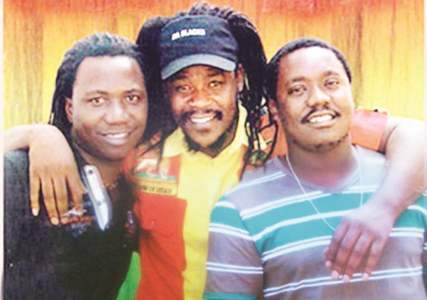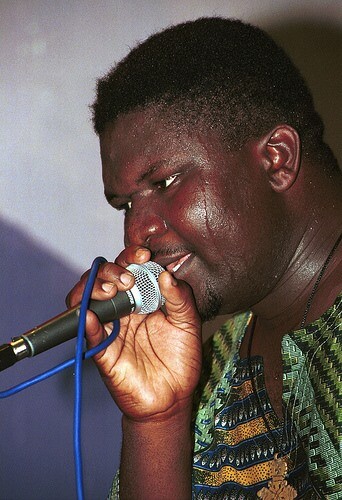
A few days ago, an article was published establishing that reggae music is one of the popular music genres in Malawi. It has been performed for decades, and throughout, it has been changing its sounds until it settled down into three main types, Balaka, Mayaka and Chileka. Reggae music was developed in the Caribbean Island of Jamaica in the late 1960s. The term ‘reggae’ seems to have an uncertain origin, but it is largely believed to come from the Jamaican word for ‘ragged man’ or common person. The music is for the common man.

The genre was popularized across the world by people like Bob Marley. It is often associated with political protest. Bob Marley is quoted to have said that reggae music is “A rhythm that resist against the system.” What he virtually meant is that, the beat in itself, even without words on it, is a form of protest. Besides political protest, the music has also been associated with the black conscious movement which was led by Marcus Garvey. He propagated the idea of “Africa for Africans”, a protest against the racism black people were experiencing in the United States of America.
Wherever reggae music was adopted in the world, this was the idea; to use the music as a form of political protest. For example, it made sense for Lucius Banda to sing his trademark political songs in reggae than in any other genre. Whenever the message is political, it makes much sense to present it using the reggae beat.
But looking at the state of reggae music in Malawi, it has diverted from this mission. Some would call it a Malawian brand of the sound and also the message. But reggae music has lost its sense in Malawi. Balaka reggae is gone. The debate on who and why this type of reggae is no longer around is for another day. The sensational rise of Mayaka reggae was betrayed by its own founder, Joseph Nkasa, when he subjectively started singing for his political masters. Reggae is supposed to be objective, and not as Nkasa treated it.

That leaves us with the Chileka reggae, being performed by the Black Missionaries band. These are the faces of reggae music in Malawi. They have represented well in Malawi and beyond. For over a decade now, they have maintained themselves as the main makers of reggae music in Malawi. But when one relates the Jamaican reggae and the one being performed by the band, in terms of message, it can clearly be seen that they have diverted from what the genre really is about.
Since reggae music is often about political [and social] protest, Malawi, as a country, is part of this social and political set up. With that situation, it means reggae music in Malawi has a lot to talk and protest about. The country is going through a lot of challenges. The political leadership is uninspiring, and with it, there is failure in terms of water scarcity, electricity blackouts, food insecurity and security lapse, among others.
Instead of tackling such challenges and calling on the government to do something about this, the Black Missionaries have become specialists in music to do with love. The trend can largely be seen after the death of their former leader, Musamude Fumulani. Even with him around, the band lacked the kind of music that would make people feel it has spoken for them. Musamude, when he chose to sound conscious, was abstract and idealistic in nature. That was where his protest began and ended. His death completely took out the reggae mission that was left for the group when its founder, Evison Matafale, died in November, 2001.
Although the Black Missionaries and all reggae music performers in Malawi should be praised for keeping alive the genre, they have misused the music. It is not playing its mission on the scene. Politics and politicians are being left free when actually we have the music that can be used to bring them back to the right lane. Reggae music in Malawi is not speaking for the people.
*Wonderful Mkhutche is a speech writer, a political scientist and a manuscript developer and editor.















Mwanyanya
Nawonso a soldier anasiya kukhala soldier of the people, why? Yellow party is associating with the blue party. He’s caught between a hard surface and a rock.
Blacks rythmically never resist systimatically…..mkasa angaimbe raggy? Hahaah
kkk adm akasa kuyimba Reggae which Reggae music by NkaSa ?kkkk
Always proud of ma blacks…and continue rest in peace brother Thafale Gft Musamude we will never forget you guys
stupid stories again …24
Eveson did it better zinazi ndi champweteka chimanga.
mayaka,balaka,chileka…..what kind of reggea is that ????
How can I explain this testimony to the public about a great man who help me out in serious illness I have HIV AID for good 3year and I was almost going to the end of my life due to the way my skin look like all I have in my mind is let me just give up because life is not interesting to me any longer but I just pray for God every day to accept my soul when ever I’m gone lucky to me my kids brother run to me that he found a doctor in the internet who can cure HIV online he help me out on everything, the doctor ask for my details, so he can prepare the herbal medicine for me from his temple after all he ask is done one week later I started getting more stronger my blood start flow normally for 4 to 5 days I start getting Wight before 6 days my body start developing my skin start coming up after 8 days which he told me that i will be completely healed, I went for HIV test and I was tested negative I’m so happy that I can say I’m not a HIV patient if you have HIV/AID or any sickness he can still help you in getting your ex-back to you please contact him via his email: dr.williamsherbaltempel@gmail.com, or whatsapp him on +2348143143878.
olo mwawaika apawa saimba regae mek further research …….regae clings in TRUEMEL in malawi … sizanuzi
olo mwawaika apawa saimba regae mek further research
olo mwawaika apawa saimba regae mek further research
musanapange post zinaz muziona kaye headline ndi full story sizkugwlizana ay amalawi mudzakula lit?
Journalism in Malawi is just literature in a hurry…. Malawi 24, u just u make other journalists look like fools!
cum on editors malawi music started from Balaka,later to Blantyre but there’s no muzik in mayaka
cum on editors malawi music started from Balaka,later to Blantyre but there’s no muzik in mayaka
I love dis guys
I love dis guys
The most stupid article I have ever read, what a fucking waste of time
The most stupid article I have ever read, what a fucking waste of time
The most stupid article I have ever read, what a fucking waste of time
Nkhani Yathera Panjilatu.
Nkhani Yathera Panjilatu.
Nkhani Yathera Panjilatu.
Dzaziiii mwalemba apazi
Dzaziiii mwalemba apazi
Dzaziiii mwalemba apazi
You are a terrible lieng
You are a terrible lieng
You are a terrible lieng
Mkasa ,Chibade, Collings Bandawe,,are some of muscians from mayaka,, are these Reggea,,,icons in as far as chileka is concern?
Mkasa ,Chibade, Collings Bandawe,,are some of muscians from mayaka,, are these Reggea,,,icons in as far as chileka is concern?
Mkasa ,Chibade, Collings Bandawe,,are some of muscians from mayaka,, are these Reggea,,,icons in as far as chileka is concern?
Limban banda wakuzombaso
Oky,,,,,,
mayaka reggae is the kind of music generaly played by artists from mayaka, zomba, tingoti kachamba kanatchuka ndi a china, Joseph nkasa, thomasi chibade, wizzie mkwezalamba, malume bokosi koma sikuti nd reggae
mayaka reggae is the kind of music generaly played by artists from mayaka, zomba, tingoti kachamba kanatchuka ndi a china, Joseph nkasa, thomasi chibade, wizzie mkwezalamba, malume bokosi koma sikuti nd reggae
mayaka reggae is the kind of music generaly played by artists from mayaka, zomba, tingoti kachamba kanatchuka ndi a china, Joseph nkasa, thomasi chibade, wizzie mkwezalamba, malume bokosi koma sikuti nd reggae
Malume Bokosi kwawo ndi ku Machinga-Ntaja osati kwa Mayaka
The Question z how do they betray Malawi?
The Question z how do they betray Malawi?
The Question z how do they betray Malawi?
Who is reggae artirst from Mayaka?To me (Chileka boys) also known as Black Missionary’s band is the name that carry’s reggae in malawi.
Who is reggae artirst from Mayaka?To me (Chileka boys) also known as Black Missionary’s band is the name that carry’s reggae in malawi.
Who is reggae artirst from Mayaka?To me (Chileka boys) also known as Black Missionary’s band is the name that carry’s reggae in malawi.
These guys makes a mockery of Journalism really its sickening
These guys makes a mockery of Journalism really its sickening
These guys makes a mockery of Journalism really its sickening
Koma kuliko anthu otsatiradi logic ku Malawi 24’ku?
Koma kuliko anthu otsatiradi logic ku Malawi 24’ku?
Koma kuliko anthu otsatiradi logic ku Malawi 24’ku?
Zosafunikila zomwe mwalemba apazi.
Zosafunikila zomwe mwalemba apazi.
Zosafunikila zomwe mwalemba apazi.
Plz educate me…… where z Mayaka in Malawi?
Mayaka is in Zomba, almost 7km, southern of Jali tc
Plz educate me…… where z Mayaka in Malawi?
Mayaka is in Zomba, almost 7km, southern of Jali tc
Plz educate me…… where z Mayaka in Malawi?
Mayaka is in Zomba, almost 7km, southern of Jali tc
Ok thank bra!!! ndekuti its the lyks of Mkasa and Chibade????
Ok thank bra!!! ndekuti its the lyks of Mkasa and Chibade????
Kuli limbani banda kuzombakoso.
Am waiting to hear how it has betrayed malawi
According to the story the tittle should have been “Reggae music betrayed in Malawi
According to the story the tittle should have been “Reggae music betrayed in Malawi
who s reggae artist frm mayaka?
we proud for bracks
So how has it betrayed malawi?
(accordin’ to the headline) saying;
“Reggae Music Betraying Malawi” ..
how has it?
surprised? That’s Malawi 24 my brother
According to the story the tittle should have been “Reggae music betrayed in Malawi “
According to the story the tittle should have been “Reggae music betrayed in Malawi “
This is Malawi24
Kkkkkkkk
Mayaka? kkkkkkkkkk
I think the writer is confused or wants to confuse us. The world is dynamic and the writer should not brainwash us with his own limited understanding of reggae music. Is it cast in stone that all reggae music should always carry a message of protest? What was Bob Marley protesting against in his love songs such as “Is this love”, “Stir it up” and others? This is an indication that reggae music can be used to convey any type of message. So in short i strongly disagree with what the writer has presented here. The problem is that our so called Malawian reggae musicians will be “too busy” to put their voice on this article.